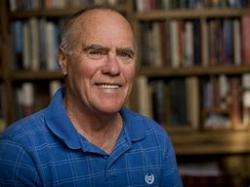Meet Aaron Brooks, who exemplified the spirit to which Roosevelt spoke 114 years ago today.
David Taylor is an Olympic Champion in freestyle wrestling who has won multiple world and NCAA championships. He is the real deal, and so is Aaron Brooks, who this year won his 4th NCAA wrestling championship while attending Penn State, where Taylor also excelled as a collegiate wrestler.
Taylor and Brooks both wrestle with the Nittany Lion Wrestling Club in State College. PA. The two practice in the same room, under the same coaches, and have competed against each other. In fact, Taylor defeated Brooks last year to represent the U.S.A. in the World Championships. Roles were reversed this past weekend in the Olympic Trials. Brooks won, which means he’ll represent the U.S.A. in the 2024 Olympics in the 86kg weight class.
But their matches offered far more than Brooks’s 4-1 and 3-1 wins. Brooks did not jump up and shout, gesture to the crowd, or act sophomoric when the second match ended. He rose to his knees in front of Taylor as both wrestlers breathed heavily in the center of the mat. These two superb athletes, who were physically, mentally, and emotionally spent, were respectful and appreciative of the two hard matches in which they had just competed.
They turned, facing each other, and touched foreheads where rivulets of sweat flowed down. Brooks then placed his right hand on Taylor’s left shoulder. It was their moment, and the official gave them the space it demanded. Then they stood together as the official raised Brooks’s hand.
As I watched the above action after the second match, it seemed to me that the two exchanged words. When I told one of my sons about it, he suggested that they might have been praying. That was certainly possible, and I wondered about their display of abiding respect. Then I found the answer in a news report: “I told him I love him,” Brooks said. “He’s one of the first guys to make [Penn State wrestling] what it is.”
What I know of Penn State wrestling is what I see during matches and read about the coaching staff and the team. Those are secondary sources. But when I see something like what happened between Taylor and Brooks after their second match, I know that I have witnessed something rare in sports and something that reminded me of words spoken over a century ago.
On April 23, 1910, Theodore Roosevelt gave a speech in Paris entitled Citizenship in a Republic. Because of a popular excerpt, it is known as “The Man in the Arena,” and what Roosevelt said that day applies to Taylor and Brooks.
It is not the critic who counts, not the man (sic throughout) who points out how the strong man stumbles or where the doer of deeds could have done them better. The credit belongs to the man who is actually in the arena, whose face is marred by dust and sweat and blood; who strives valiantly; who errs, who comes short again and again, because there is no effort without error and shortcoming; but who does actually strive to do the deeds; who knows the great enthusiasms, the great devotions; who spends himself in a worthy cause; who at best knows, in the end, the triumph of high achievement, and who at the worst, if he fails, at least fails while daring greatly, so that his place shall never be with those cold and timid souls who neither knows victory nor defeat.
Think of the words Roosevelt uses—errs, sweat, effort, shortcoming, strive, enthusiasms, devotions, cause, achievement—to describe what it is like to be in the arena. If you ponder those words, you will know what remained for Aaron Brooks to do, namely, honor the other who was in the arena with him.














